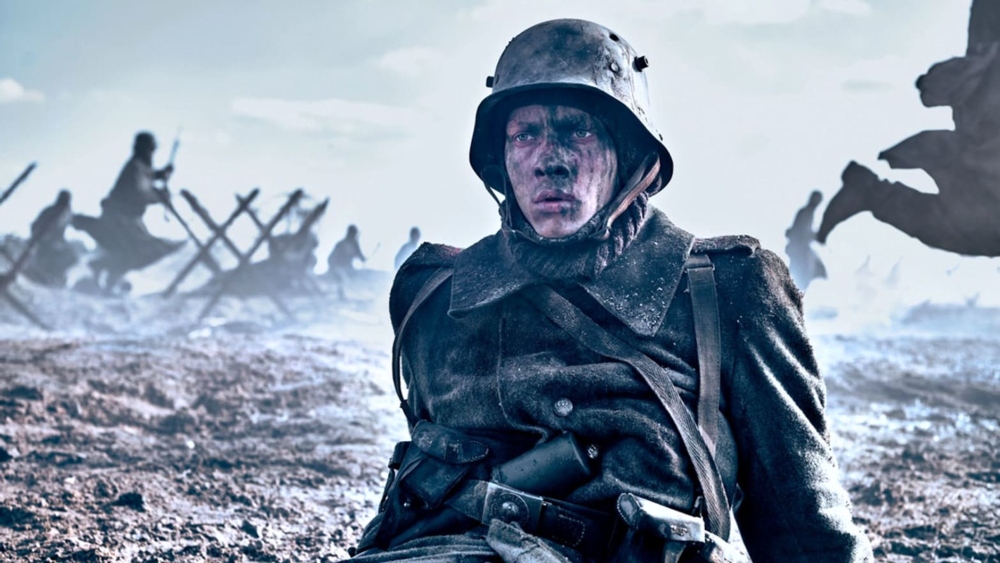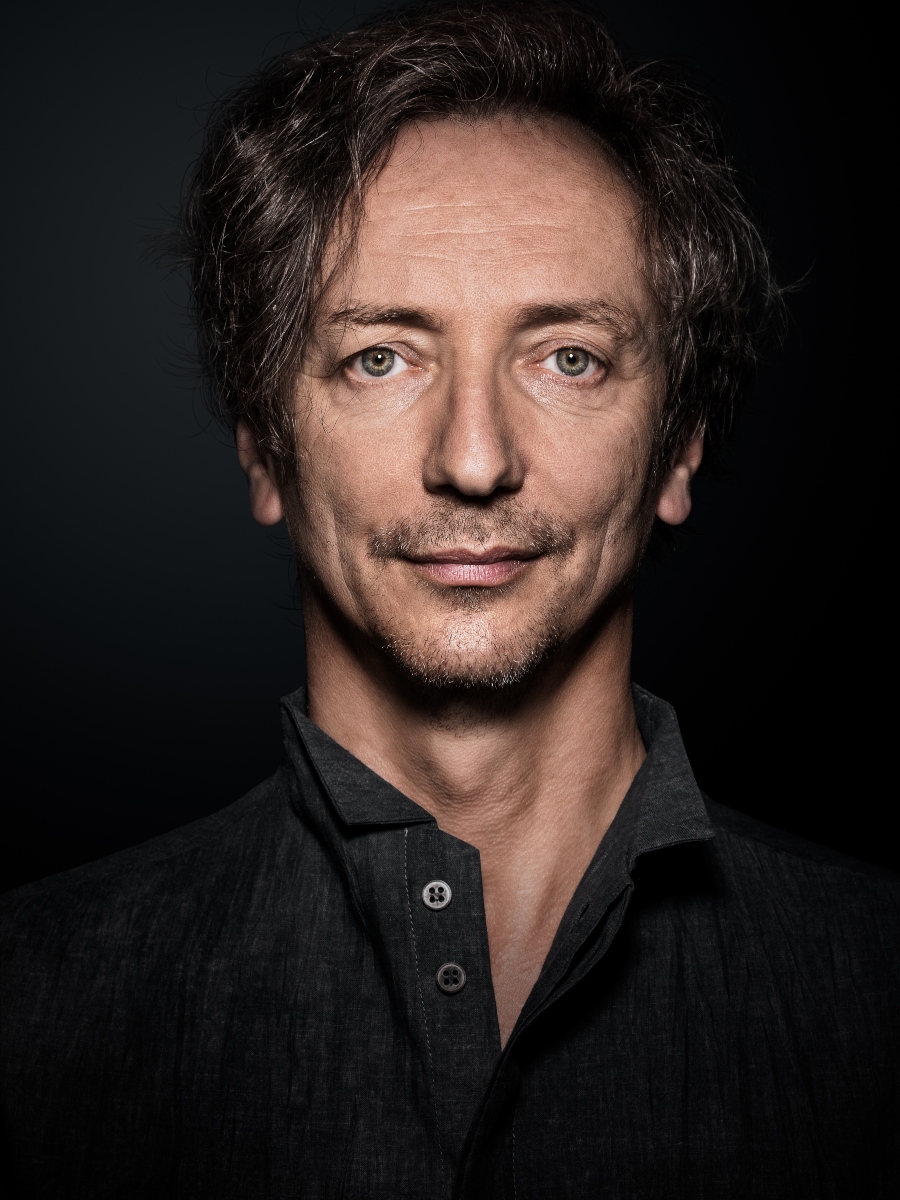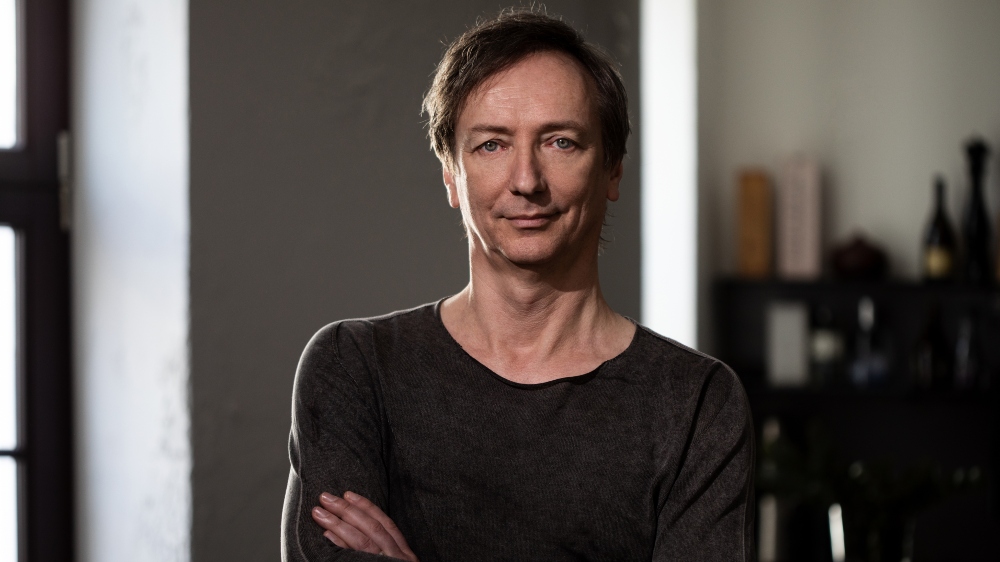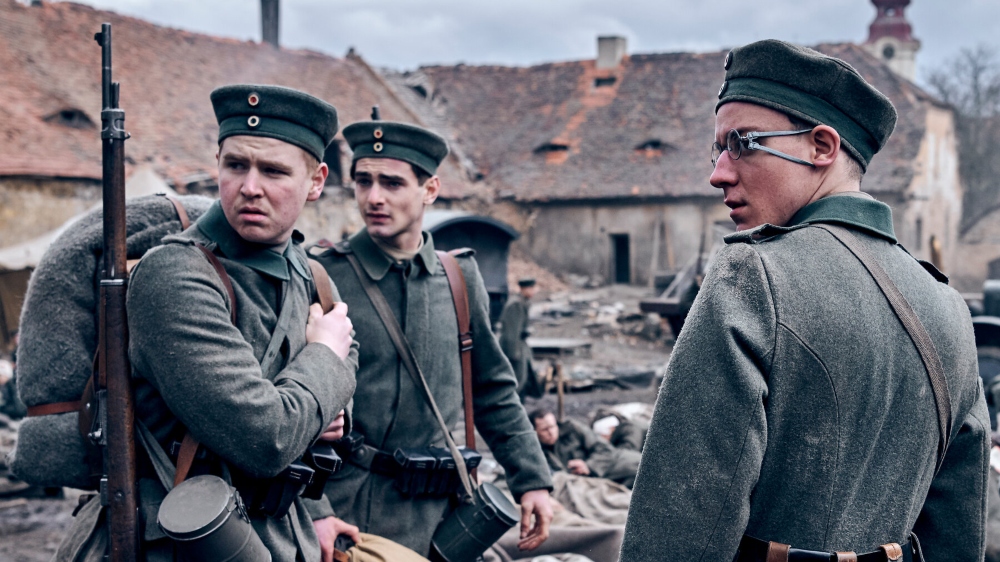
All Quiet on the Western Front marks the fifth collaboration between German filmmaker Edward Berger and Composer Volker Bertelmann, his fellow countryman who previously scored Berger’s Showtime miniseries Patrick Melrose starring Benedict Cumberbatch.
The anti-war film, which is now streaming on Netflix, represents the first-ever German adaptation of Erich Maria Remarque‘s classic novel, and it follows in the footsteps of Universal’s Oscar-winning 1930 film directed by Lewis Milestone. Suffice it to say, it is not an easy watch by any means, and with the Russian invasion of Ukraine earlier this year, the film’s message about the horrors of war couldn’t be timelier.
Bertelmann, who often performs under the name Hauschka, recently spoke to Below the Line and discussed his composing process for the film, as well as how his shorthand with Berger has improved over the years. Their relationship is now at a point where their conversations are short and dry, not because they have nothing to say to each other, but because Berger implicitly trusts the composer. Bertelmann delivers once again, as his score never overwhelms All Quiet on the Western Front, which is Germany’s submission for the Best International Feature Oscar this year.

Below the Line: What went through your mind when you were asked to score the German remake of All Quiet on the Western Front given the novel’s history and the legacy of the Oscar-winning film from 1930?
Volker Bertelmann: Well, first of all, I read the book when I was 18 in school and then I never read it again since then, maybe because I didn’t want to go back to the battlefield. But then, when Edward Berger [asked] me to work on All Quiet with him, I felt quite thrilled because first of all, it’s a novel that children are still reading in Germany, so it’s not only a film for adults. At the same time, I felt the time is right to actually do an anti-war movie that is so drastic, in a way. I had the feeling it was a good time.
BTL: It feels even timelier right now with everything going on in Ukraine with Russia, no?
Bertelmann: Absolutely, absolutely. It’s also showing the nastiness of war. We are mostly, all the time, in a kind of very confident, comfortable situation where we don’t feel any of the nastiness that is happening in the world. But even when Ukraine [wasn’t at war], there were already the same wars going on in other areas of the world, so we’re never in a very peaceful time.
BTL: Have you seen the 1930 movie?
Bertelmann: No, I haven’t because I like actually being very fresh. It’s a little bit like going onstage with a prepared piano and improvising. I don’t want to feel any kind of disturbance or occupation because I’ve seen something that I really loved. I’d rather follow my own instinct first.
BTL: Did the rich history of both the book and the film pose an extra challenge in terms of scoring the film?
Bertelmann: Well, I think what was very challenging was finding music that is relevant. In a story that is so dense, there’s a lot of fighting and explosions, [but] then you have these kinda natural pictures of pure nature, which I think is a little bit [of a] juxtaposition of the nastiness of battle. You get a little bit of relief when you see these beautiful landscapes, in a way, and to find music that is not pathetic or that is trying to push you into this romantic area of, “hello, there’s the sun” kind of feeling, that is, I think, the challenge in a film like that because it’s such a powerful film itself already.
BTL: For sure. One of the things I noticed when I watched the film was how the music didn’t overwhelm it.
Bertelmann: Well, I’m very glad that you’re saying that because that is, for me, a compliment. I have the feeling that, of course, films like those are not asking for a big orchestra with the whole machinery. I tried to fill the screen or the scenes where I was able to spread violence and nastiness into the film. I used a harmonium — one harmonium octave — and I put it through an amplifier and that was it. It was enough to sound maybe like a big war horn in a way that is alarming you that the machine [has] started rolling again.
BTL: I’ve seen some action films where it’s hard to tell where the sound effects end and the actual score begins.
Bertelmann: Absolutely. Which I think here, maybe in the battle scenes, there are so [many] gunshots and explosions [that] these are very difficult scenes, frequency-wise, to find your space between all the low rumble. And sometimes you can’t recognize the bass movements, so suddenly you lose the connection to the chords, so you have to be very careful which frequencies you are using.
BTL: I know that there are some composers who start working on the score before they ever watch a frame of footage. What was your composing process when it came to this film?
Bertelmann: I’m doing that sometimes as well, depending, first of all, on how inspiring I think the script is and [whether] I want to have a fresh approach without pictures. In this case, I started because I just read the script [and] got the call. The next day, the film was already in such good shape that I had the feeling it [was] good to watch it in total, and then I’m starting from my first impression [of] the full movie.

BTL: What kind of notes or direction did you get from director Edward Berger?
Bertelmann: Well, Edward and me, we’ve done five films together. I think what is the advantage of our working relationship is that he really trusts me and that means there are not [many] words. It’s a little bit like a conversation between me and my father that is just like, “how are you?” “Good, thank you [laughs].” Yeah, a little bit like that — very short and dry. But at the same time, the only thing that he was saying to me is he would love to have something that is not the usual score, and he wants me to do something extraordinary from my side that I haven’t done before. That is a lot of pressure, just [that] sentence. It puts you right in the spotlight, but from there on, I just was mainly doing what I wanted to do.
BTL: How has the shorthand improved in your relationship over the years?
Bertelmann: What has improved is that we really… I think a lot of [my] work relationship with other directors, and other musicians as well, is not based on fear, but there’s a lot of fear involved because you always have the feeling you might lose it, or you might [make] a mistake or something like that. [However], the relationship with Edward is nearly fearless, which I think is very nice as a starting process — when I sent him the harmonium quartz two days after I saw the film in Berlin, he could have said, “Oh, man, that doesn’t work. Can you find something else?” But because he had a straightaway reaction, he called me right away and said, ‘it sounds like a rock band… or like a very vast sound.’ I was very happy about that. And from there on, all the leashes are cut, [and] you’re just on fire.
BTL: Were there any challenges in recording the score that resulted from the pandemic?
Bertelmann: Yeah, there [were]. I worked with the LSO orchestra in London and I recorded at AIR studios, which I would have loved to be present [at]. But because the restrictions of the English government were suddenly starting to get strict again and I had the feeling I might have to go to quarantine and I can’t visit my own recording, I decided to stay in Düsseldorf and do [a] remote session. That was a little bit of a bummer. But, as we hear, they did a great job and remote is not always bad. It’s actually sometimes even more concentrated because you’re not wasting time drinking too much coffee and you have a much more dense work ethic, I would say. In a way, the disadvantage was [also] an advantage.

BTL: How did you first get an interest in composing?
Bertelmann: Well, when I was 12, I wrote a piece for my grandmother, a piano piece. That was the first time where I felt, like, “I think I can do that.” It was called “For Alma.” Alma was the name of my grandmother. I worked in bands and I wrote all the music; I wrote all the songs. I started to do my first TV show when I was 18, [and] I wrote some music for it. I studied medicine because then I wanted to be a doctor and not a composer [laughs]. I stopped all the… well, I played piano in the evenings, but I was getting a little bit like, “I have to do an ordinary job,” or something like that.
But I stopped medicine studies when I was signed for a hip-hop band. My life was going in all sorts of directions but I was doing everything, I would say, very passionately until I recognized where my path is going. As you know, life is not always streamlined. There are a lot of diverse decisions. Your parents are — in the beginning — involved because they are pushing you towards, “you have to earn money! Don’t make music, it’s not worth it.” But my passion [for] writing music was so strong and I was always improvising on the piano that I felt it [was] something that I wanted to have as a part of my everyday life.
BTL: Do you find that those improvising skills help you when it comes to composing?
Bertelmann: Oh, yeah, absolutely. I can fire out 10 ideas in a day just for one scene, and I can give people options, which is, in a way… I mean, that sounds maybe a little bit like not all the ideas are strong. I can tell you it’s more about the range that you present in your offers that makes the decision for [the] director so much easier, because a lot of times, you have to deal with people [who] can’t express their musical [vision]. The adjectives for describing music are very limited. The best way is to send them pieces and [in] those examples, you can say, “I love this darkness. I love the tension here.” And from there, I can figure out how the landscape should be in the end, from my side. Improvisation, in that sense, is extremely helpful.
All Quiet on the Western Front is now streaming on Netflix and is eligible in all Oscar categories, including the Best International Feature category, where it is Germany’s submission.





